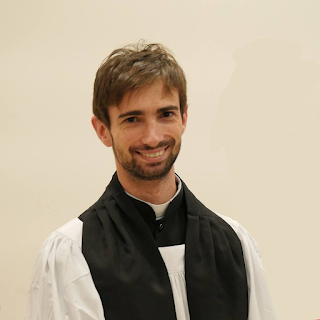Reading
The story of the healing of the demon-possessed epileptic immediately follows that of the transfiguration of Jesus, which took place before Peter, James and John. Even though he dwells in glory, Christ does not neglect to humbly stoop to take care of the needs of his people.
The Greek verb ekthambeomai, with which Mark describes the feelings of the crowd at the sight of Jesus, is associated with fear and amazement. It seems to recall the fear of the people in front of the shining face of Moses after his descent from Mount Sinai, where he had received the tablets of the law from God (Ex 34:30).
Jesus finds the other nine disciples arguing with the scribes, because they failed to free a young man whom an evil spirit made unable to speak. He is surprised by the inability of the disciples, having given them all power, but also by the incredulity of the scribes and the people, which reflects the poor reception received by his ministry in Galilee.
The episode reported by Mark attests that receiving a missionary mandate from Jesus does not ensure success if great faith and fervent prayer do not nourish the apostolic ministry.
The father of the demon-possessed young man perfectly describes the anticonservative attitude instilled by the evil one in him. The devil hates man, that is made in the image and likeness of God, and pushes him towards death, first of all tempting him to sin, and in extraordinary cases, attacking his physical and mental integrity. Sometimes God allows us to meet him only after we have passed "through water and fire".
Although sometimes Jesus heals regardless of the person's faith (Mt 17:20; Lk 17:6), in this case he chooses to show the power of faith, to which "everything is possible" (v. 23).
The admission of the imperfection of his faith by the boy's father perhaps testifies to the doubts generated by the conflicting judgments on the figure of Jesus, but it is above all an act of humility, different from the attitude of the people and of the scribes who ask for signs and wonders as a condition for believing in Jesus. Faith, which is a gift from God, can only be increased by God, but it requires an open heart to welcome it. The father of the demon-possessed young man gains confidence in Jesus by turning to him and leaving the confused voices of the crowd in the background.
The indicative verb "I command you" (v. 25) used by Jesus reveals his absolute authority over the demons. His healings attest to his divinity by power over the natural order. His exorcisms show his divinity by power over the supernatural order.
The last attack launched by the evil one on the boy seems lethal, thus giving the gesture of Jesus the value of a resurrection, to which the Greek verbs egeiro and anistemi also allude: they are technical terms used in the New Testament to indicate the resurrection. It is precisely when we meet Christ that evil comes to light in all his shocking reality. Before the glory of God we feel terrified. Dying to ourselves means becoming aware of one's sense of total helplessness without the grace from which all good comes.
Prayer, not as a magic formula, but as an act of trusting abandonment into the hands of the Lord, will restore the freedom of God's children to us.
Prayer
Come and visit us Lord, and dissolve every bond that keeps us bound to evil; so that we can testify to the power in heaven, on earth, and under the earth, of your glorious name. Amen.

